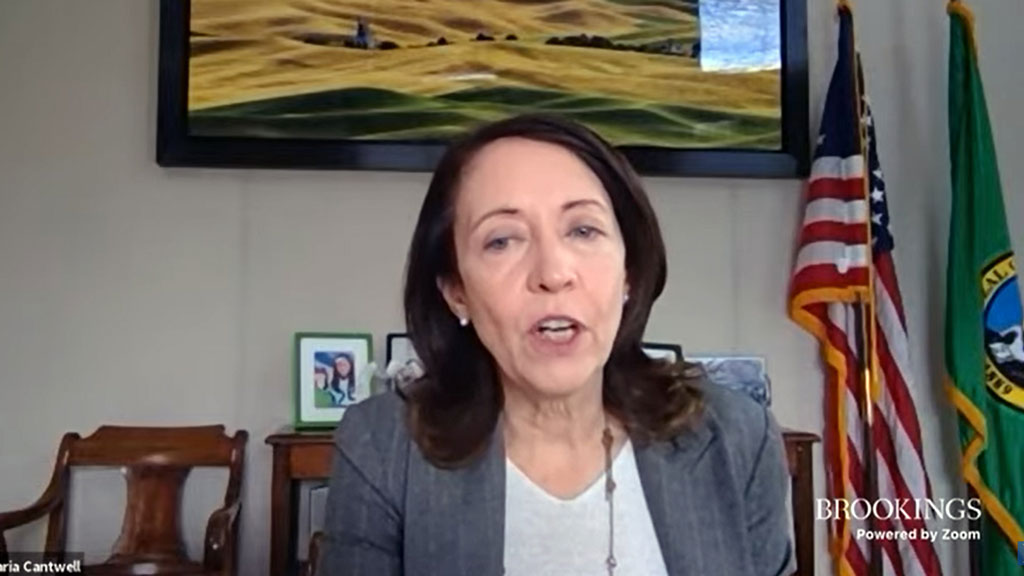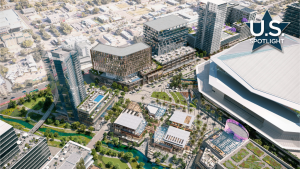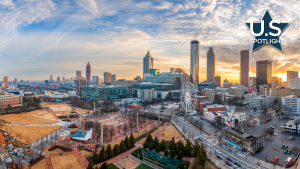The Washington-based Brookings Institution has released a policy paper intended to provide progressive “21st century” guidelines for the Joe Biden administration’s proposed massive infrastructure program, but two senators speaking at a Brookings webinar recently suggested traditional infrastructure imperatives will remain a primary focus of the spend.
President Biden unveiled what he called his “once-in-a-generation investment in America” at a carpenters training centre in Pennsylvania March 31, pledging to spend $2 trillion on infrastructure. The Brookings event, held earlier this month, was billed as Rebuilding American Infrastructure for the 21st Century.
During her closing address at the webinar, Sen. Maria Cantwell (D-Wash.), chair of the Senate Committee on Commerce, Science and Transportation, served notice that in her view top priorities to enable the U.S. economy to profit from growing global middle-class demand should be megaprojects and moving freight.
“America’s competitiveness can be summed up in one way — freight can’t wait,” said Cantwell.
“If freight can’t get to a market in a timely fashion, or you’re stuck in Chicago and can’t get product across America, shelf space in Asia is not going to wait. They will get product from other places, they will get it from South America, they’ll get it from Canada. They will impact the competitiveness of the United States.”
Cantwell said a decade ago she visited Shanghai and saw an immense port system with numerous cranes moving cargo for international markets. She also cited improvements to intermodal connections being made in Prince Rupert, B.C. and Rotterdam as threats to U.S. competitiveness. Even grade crossings need significant attention, she said.
American infrastructure can build a better future. We just need to prioritize the right outcomes,
— Adie Tomer
Brookings Institution
“I believe that Congress must join with the president and invest in megaprojects,” said Cantwell. “They are important to our nation, and they are important to regional economies.”
Sen.Tom Carper (D-Del.), chair of the Environment and Public Works (EPW) Committee, opened the session with a discussion of the importance of strong relationships in negotiating on infrastructure legislation. He has known Biden for 45 years, he said, and noted he has ties with Sen. Shelley Moore Capito (R-W.Va.), the ranking member of the EPW Committee, given that both of them have West Virginia roots.
“We trust each other and we like each other,” said Carper.
Carper spoke in praise of Biden’s plan to develop 500,000 electric charging stations across the country. But regardless of the way vehicles are powered, he said, he believes funding for America’s roads should include user pay.
“That’s the future I think,” he said. “I think vehicle miles travelled, so if you’re using gasoline or diesel or you’re hydrogen powered or you’re in a battery-powered electric car, you’re going to have to pay for the cost of maintaining and building and upgrading our roads.”
Carper said Biden’s infrastructure proposal represented opportunities to both create jobs and do good things for the planet, and he hoped legislators did not “blow it.”
“I think we’re going to get this done. I’m encouraged,” said the senator.
Brookings fellow and event host Adie Tomer is one of three authors of the Brookings report presented at the event, titled Rebuild with Purpose: An Affirmative Vision for 21st Century American Infrastructure. He said past reports from academia, government and business have advocated for solutions isolated on transportation, water, energy and telecommunications needs. That needs to change, Tomer said.“The federal government has the scale and the resources to lead a grand revisioning in reinvestment in the country’s built environment,” said Tomer. “And instead of stubbornly attempting to spend more within traditional programs and expecting different results, we suggest congressional leaders and their executive branch partners should design policies to solve 21st-century challenges.”
Three strategies should be at the forefront as America decides on infrastructure priorities, the Brookings paper stated: measuring infrastructure needs; modernizing assets based on those retooled measurement systems; and committing resources to experiment with new technologies, fiscal practices, training systems and applied management practices.
“American infrastructure can build a better future. We just need to prioritize the right outcomes,” Tomer commented. “But how do we do that?
“If we can co-ordinate our policies to address four structural forces head on — climate, digitalization, workforce development, and fiscal health — then we can design solutions that punch above their weight, delivering lasting value at scale.”
Follow the author on Twitter @DonWall_DCN.











Recent Comments
comments for this post are closed